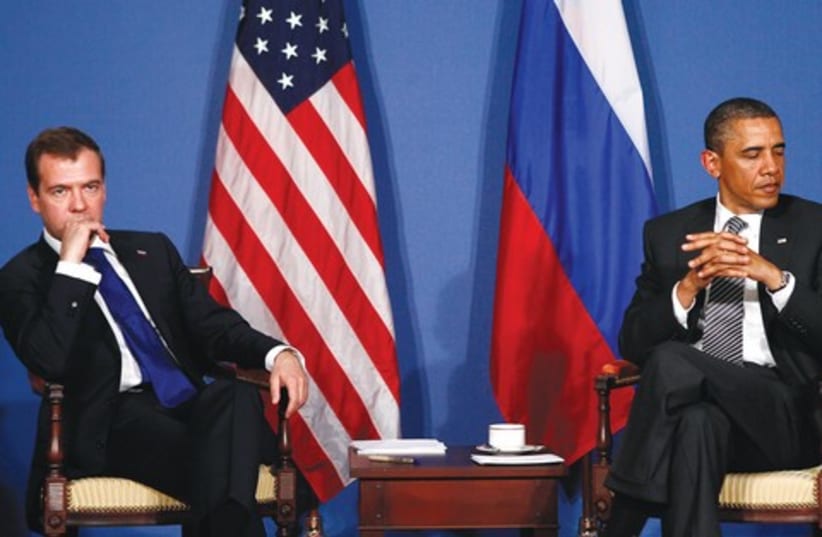The writer is Assistant Director of the Institute for Strategic Threat Analysis & Response (ISTAR) at the University of Pennsylvania. He received his J.D. from Georgetown University and his M.A. in Islamic and Middle Eastern Studies from the Hebrew University in Jerusalem, Israel.
The key to Iran: Leveraging Russian fear
Obama’s conciliatory Russian policy is paving the way for a new Cuban Missile Crisis.

The writer is Assistant Director of the Institute for Strategic Threat Analysis & Response (ISTAR) at the University of Pennsylvania. He received his J.D. from Georgetown University and his M.A. in Islamic and Middle Eastern Studies from the Hebrew University in Jerusalem, Israel.